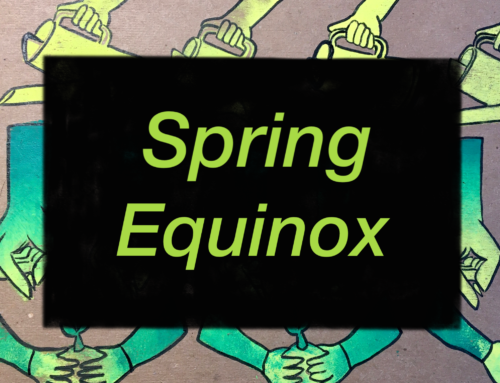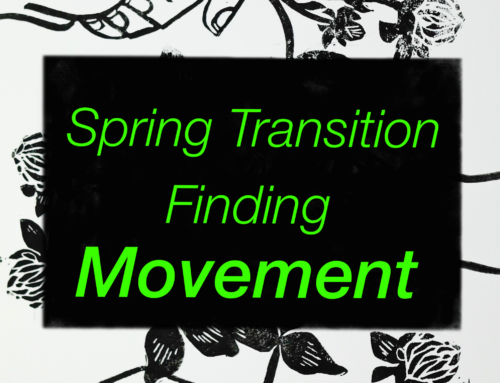Coping with Burnout- Adrenal Fatigue
Seasons are never stagnant, maybe you have noticed the shifts. Longer hours of sunlight, the occasional warm sunny day, a blade or two of a bulb plant pushing out of the earth, signs that spring is slowly creeping in. Rebirth and renewal are right around the corner.
Still, it is essential we continue our seasonal care. Kidney health is one of the main focuses in the winter. The kidney system extends to the bladder and the adrenal glands. Adrenal glands health is essential for processing and regulating the impact of stress. Our body naturally deals with stress by moving into our sympathetic nervous system (fight, flight, or freeze), then moves into our parasympathetic nervous system (rest/digest) once the stressor has subsided.
Chronic stimulation causes the body to stay in a hyper vigilant state, always preparing for survival. Unfortunately, culturally, we are conditioned to be overstimulated. Our bodies are often in overdrive because we are pushed to be productive instead of restful and to work long hours just to make ends meet. We are all feeling stress from the pandemic, isolating over the winter months hasn’t been easy on anyone. A body that is in an ever vigilant state will eventually lead to a crash, also known as burn out or adrenal fatigue. Your adrenal glands do their best to regulate the production of stress hormones but eventually they get worn out and are unable to keep up with the constant demand.
We may be too busy to even notice the signs of potential burn out or decidedly push through them, ignoring the messages of the body. To be able to come back home within ourselves we have to make the space to listen into the body and notice if there are warning signs.
Signs of Burnout:
- Extreme fatigue
- Craving salt
- Anxiety
- Depression
- Difficulty managing minor stressful situations
- There can be other signs, learning to listen in will help you recognise your personal symptoms of potential burnout
“Those who are vulnerable to adrenal fatigue are like a garden hose turned on high without anyone holding on to it: The energy is flying all over the place, on the ground and in the air.” -Sarah Kucera, The Ayurvedic Self-Care Handbook
The solution to burn out will always be to slow down and choose rejuvenation over stimulation.
Often it is the lifestyle that leads to adrenal fatigue. Our lifestyles sometimes won’t allow time for restoration. If this is the case, providing short daily rituals can make a big difference, these rituals can include restful moments to check in with the body.
Rituals for coping with Burnout: Consistency & Presence are key
- Morning and Evening Journaling: (3-5 minutes) Daily written reflection allows one to have a container for their energy. Mapping out your plans for any given day allows you to know where you plan to spend your energy. Coming back in the evening you can check in to see how your planning went, how it changed, etc. Part of feeling burnt out is feeling that your energy usage is out of your control. Writing out your daily plan provides structure so you know when and where you will spend your energy. Checking-in during the evening allows you to reflect and to cultivate more awareness in the future.
- Adaptatgens: refers to a class of plants that support the body’s resistance to stress. These are best taken over time to allow them to build up in the body. It is important to note that these alone can not solve the problem, plants are here to support but rest is essential for dealing with burnout. There are many herbs that can be supportive, two such herbs that I have a personal relationship with are Tulsi and Oats. Tulsi helps to lower cortisol (“stress hormone”) levels in the body. I personally love tulsi in teas, vinegar, and in facial & vagina steams. Milky Oats are the nervous system’s best friend. They help to build up the nervous system by rebuilding the myelin sheath ( the protective layer around the nerves). I enjoy having milky oats in tea. Oatmeal eaten regularly can also have a calming and grounding effect on the nervous system.
- Alternate Nostril Breathing: ( 3-5 minutes) Having a daily breath practice is a great way to inform the nervous system that it is okay to let its guard down. Any form of deep intentional breathing will have beneficial effects on the nervous system. Alternate Nostril Breathing is a great practice to use since it is inherently balancing and calming. We have practiced this balancing breath technique in class and will practice again this week.
- Yoga and Meditation: (5 min – 1 hr) We can work these practices into our day. Doing so means we have carved out space to tune into what is unfolding in the body. When we create the space to listen in we are practicing self care which will greatly impact an overtaxed nervous system.







